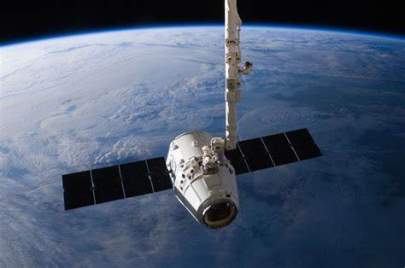China building ability to hijack enemy satellites.

China is building hacking capabilities that will allow it to "seize control" of enemy satellites, the Financial Times (FT) reported Friday, citing a leaked report from the CIA.
The revelation comes amid ongoing tensions between Beijing and Washington over trade and geopolitics, as concerns rise that China may try to invade Taiwan, a territory it considers its own.
The FT said the CIA report was one of the dozens allegedly shared by a 21-year-old US Air National Guardsman in one of the worst intelligence breaches in a decade.
The report assessed that the plan to "deny, exploit or hijack" enemy satellites is a core part of China's goal to control information, which Beijing considers to be a key "war-fighting domain."
The Chinese cyber weapons would render Western satellites useless for communications or surveillance during wartime, the report said.
They would work by mimicking the signals that enemy satellites receive from their operators, tricking them into either being taken over completely or malfunctioning during crucial moments in combat.
This could knock out the ability of satellites, which tend to operate in clusters, to respond with each other, relay orders to weapons systems, or send back visual and intercepted electronic data, according to experts cited by the business daily.
China has, for the past decade, been racing to build up its military capabilities in space, including satellite communications.
The CIA revelations come a day after the chief of the US Space Force warned that the country was facing a "new era" of threats beyond Earth from the likes of Russia and China that goes much further than jamming.
General Bradley Chance Saltzman told CNBC that Washington's rivals can use lasers and "dazzlers" that interfere with cameras to prevent the collection of satellite imagery. He also noted how Russia tested an anti-satellite missile in late 2021.
"We're seeing satellites that actually can grab another satellite, grapple with it and pull it out of its operational orbit," Saltzman said. "These are all capabilities they're demonstrating on-orbit today, and so the mix of these weapons and the pace with which they've been developed are very concerning."
In response, Washington plans to step up the use of commercial space players, he added.
Saltzman told the US Congress last month that China's military has deployed 347 satellites, including 35 launched in the past six months, aimed at monitoring, tracking, targeting, and attacking US forces in any future conflict.
The Washington Post this week reported how Russia is testing new technology that jams Ukraine's access to the Starlink satellite internet operations that billionaire Elon Musk donated to Kyiv at the start of the war.
Starlink has been a boon to Ukraine's forces, helping them relay intelligence and communicate to and from the battlefield.
During its full-scale invasion of Ukraine, Russia has stepped up the use of satellite jamming via the Tirada 2, a truck-based system that interferes with satellite internet reception on the ground.
Satellite images and communications have, for the Ukrainian military, played an indispensable role ahead of and during the conflict, mapping the Kremlin's plans, capturing Russian troop movements, and pinpointing damage to infrastructure.
UK warns of China's plan for cyber-'supremacy'
Britain's cyber chief also warned this week that China is aiming for "global technological supremacy" in cyberspace and is using its cyber capabilities to conduct intelligence and surveillance campaigns.
Lindy Cameron, director of the National Cyber Security Centre (NCSC), part of Britain's GCHQ eavesdropping spy agency, said China was not only "pushing for parity with Western countries, but it is aiming for global technological supremacy."
China is also using its cyber capabilities to acquire intellectual property, achieve its strategic geopolitical goals, and conduct global spying campaigns, Cameron told a government cybersecurity conference in Belfast on Wednesday.
Read the full article here:




